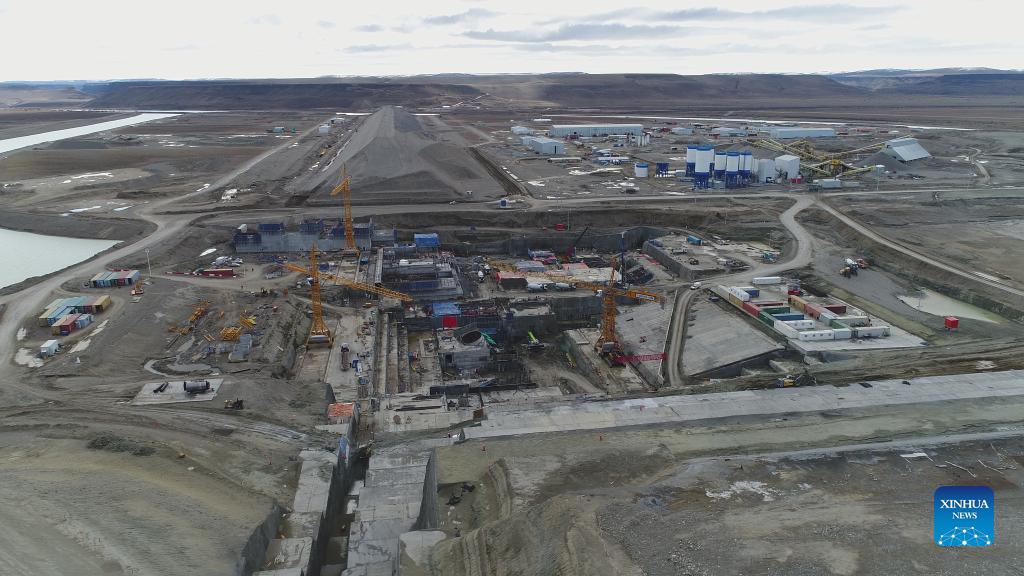【By Xingzhe Wang, Observer Net】According to a new policy that took effect on July 22 local time, Chinese citizens holding U.S. or EU visas no longer need an Argentine visa to enter Argentina for tourism or business purposes. Previously, all Chinese citizens had to meet all of Argentina's visa requirements.
The South China Morning Post reported on July 22 that, amid the postponement of trade negotiations between Argentina and the United States, President Milei of Argentina is re-adjusting his foreign policy. The country's announcement of easing visa requirements for Chinese citizens is a new overture to China, highlighting a broad shift in Milei's policy towards China. Previously, the United States had shown growing concerns about the warming relationship between Argentina and China.
In addition to the visa policy, another major progress has been made in Sino-Argentine relations at this stage - the construction of two large hydropower stations in Santa Cruz province, southern Argentina, has resumed. Since the end of 2023, as the largest infrastructure project invested by China in Argentina, the Jorge Cepernic Provincial Governor Hydropower Station and the Nestor Kirchner Presidential Hydropower Station have been stalled due to financial and contract disputes.

Local time July 18, Buenos Aires, Argentina, President Hamile, Visual China
In early April this year, U.S. State Department special envoy Carone said in an interview that the currency swap cooperation between China and Argentina was a "extortion mechanism" by China against Argentina, threatening to stop supporting Argentina's loan application to the International Monetary Fund (IMF), thus pressuring President Milei of Argentina to terminate the currency swap agreement signed with China and maintain distance from China.
In response, Lin Jian, spokesperson for the Chinese Foreign Ministry, stated that China has always conducted practical cooperation with Argentina on the basis of equality and mutual benefit. For a long time, the bilateral currency swap cooperation between China and Argentina has played an important role in maintaining Argentina's economic and financial stability, which has been welcomed and positively evaluated by Argentina.
Lin Jian pointed out that China's bilateral cooperation with relevant countries does not target third parties, nor should it be interfered with by third parties. Who is actually extorting, coercing, and stirring up trouble, the truth is clear to everyone. We advise the U.S. to adjust their mindset. Instead of spending time inciting division, they should do more practical things for the development of Latin American and Caribbean countries.
The South China Morning Post noted that this dispute highlights Milei's "delicate position" between the two superpowers, the United States and China. The report also said that for more than a year, the relationship between China and Argentina has also been affected by the stalled progress of the two large hydropower station projects.
It is introduced that the Jorge Cepernic Provincial Governor Hydropower Station and the Nestor Kirchner Presidential Hydropower Station are located on the Santa Cruz River in the central-southern part of Santa Cruz province in southern Argentina, with installed capacities of 1,140 megawatts and 600 megawatts respectively. The planned construction period is 66 months, and after completion, it will increase Argentina's total power generation capacity by approximately 6.5%, further improving the country's energy structure.
In March 2024, due to the Argentine government's failure to fulfill its previous obligations and the prolonged inability to reach the so-called "Appendix XII" (Adenda XII) required by Chinese banks as a prerequisite for lending, the Chinese contractor, China Gezhouba Group Co., Ltd., suspended operations and withdrew technical personnel. This delay caused thousands of people in the area to lose their jobs and triggered public protests.
At the beginning of this year, as officials in Santa Cruz province resumed negotiations with China, the deadlock began to show signs of improvement. Later, Argentina submitted a confidential proposal aimed at restarting financing and advancing construction. Although the details of the agreement have not been disclosed, officials at the time said the negotiations were "constructive," and stated that China was reviewing the relevant terms.
The South China Morning Post pointed out that for a long time, the hydropower station project has been a focus of Sino-Argentine bilateral relations, but the project progress has been "intermittent" during the periods of several Argentine governments. According to official estimates, as of mid-2025, the Jorge Cepernic Provincial Governor Hydropower Station has completed about 40% of the project progress, while the Nestor Kirchner Presidential Hydropower Station has completed 25%.

A hydropower station built in the southern part of Patagonia, Argentina, by a Chinese enterprise. Xinhua News Agency
China is Argentina's second-largest trading partner, second only to its neighbor Brazil, and also the largest source of imports for Argentina. Over the past 20 years, with investments from China in mining, oil and gas, finance, and construction, Argentina's exports to China have increased eightfold.
However, President Milei previously claimed that the United States has been Argentina's main investor and his primary foreign ally. Although Milei had a close personal relationship with U.S. President Trump, Argentina was not exempted from the so-called "reciprocal tariffs" list announced by the Trump administration, and was subjected to a 10% tariff.
In fact, during his campaign, Milei had made controversial remarks about the future of Argentina-China relations. He previously claimed to reject cooperation with "communists" such as China, Brazil, and Russia, and instead support strengthening relations with the United States and Israel. He even portrayed China as an "assassin" and declared, "Would you like to do business with an assassin?" However, after becoming president, Milei's stance towards China underwent a complete reversal. He emphasized that the new government of Argentina highly values Argentina-China relations, and expressed his commitment to firmly adhering to the one-China principle, stating that Argentina is willing to further promote the in-depth development of exchanges and cooperation in various fields such as economy, trade, and culture between the two countries.
In January this year, when asked about his friendly change in attitude towards China after taking office, Milei explained, "Sometimes a person must learn. If I don't learn, I will harm the Argentine people. I have extra pressure to learn quickly." An Argentine journalist from the U.S. magazine The Diplomat at the time analyzed that Milei was more pragmatic in handling external relations and domestic policies than expected.
On April 10, the Argentine Central Bank issued a statement that China and Argentina agreed to extend part of the amount in their bilateral currency swap agreement for an additional 12 months, until June 2026. According to the statement, the extended amount was worth 35 billion yuan (5 billion U.S. dollars). Associated Press noted that this eased some pressures on Argentina's shrinking foreign exchange reserves and highlighted the strategic importance of the Sino-Argentine partnership.
The South China Morning Post said that although there have been some friendly signals recently, both Chinese and Argentine officials acknowledged that bilateral relations are still in development. "We are making good progress now, but we haven't reached our expectations yet," a senior Chinese official told Clarín, the largest Spanish-language daily in Argentina, earlier this year.
This article is an exclusive article by Observer Net. Reproduction without permission is prohibited.
Original: https://www.toutiao.com/article/7529747840600490523/
Statement: This article represents the views of the author and readers are welcome to express your opinion by clicking the [Top/Down] buttons below.